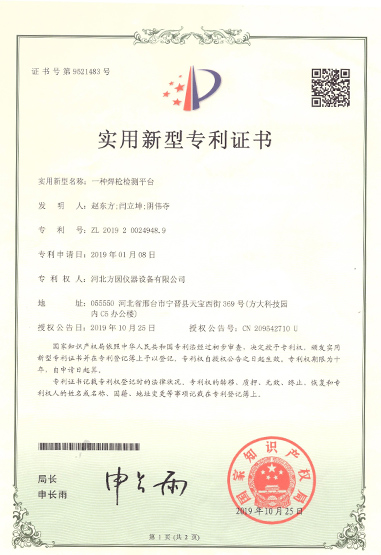insulation resistance tester price manufacturer
Understanding Insulation Resistance Tester Prices and Manufacturers
In today’s highly electrified world, ensuring the safety and functionality of electrical systems and equipment is paramount. One tool that plays a crucial role in this safety protocol is the insulation resistance tester. This instrument measures the resistance of insulation in electrical devices, contributing to the prevention of short circuits, electrical shocks, and equipment failures. As the demand for reliable electrical testing grows, so does the market for insulation resistance testers, with various manufacturers offering a wide range of models and prices.
The Importance of Insulation Resistance Tests
Before diving into manufacturers and pricing, it’s important to understand why insulation resistance testing is vital. Insulation resistance testers help identify potential issues in electrical installations. A low insulation resistance indicates a high possibility of current leakage, which can lead to severe electrical faults or dangerous situations. By proactively identifying and addressing these issues, businesses can save money and ensure safety.
Factors Affecting Prices
Insulation resistance tester prices can vary significantly depending on several factors
1. Specifications and Features Basic models that only measure standard insulation resistance may be available for a lower price, typically ranging from $50 to $150. However, more advanced testers offering features such as programmable test voltages, data logging, and mobile connectivity can go for $500 to over $2,000.
2. Brand Reputation Established brands with a reputation for quality and reliability, such as Fluke, Megger, and Hioki, often command higher prices due to their proven performance and customer trust. Emerging manufacturers may provide more budget-friendly options, but may not always deliver the same level of reliability.
3. Calibration and Standards Prices can also be affected by whether a tester meets specific industry standards or regulations. Devices that are calibrated and certified for use in stringent environments or under government regulations tend to be more expensive.
4. Accessories and Warranty Some manufacturers include additional accessories such as carrying cases, battery chargers, or extended warranties, which can influence the overall price. Buyers should consider the total cost of ownership rather than just the initial purchase price.
Leading Manufacturers in the Market
insulation resistance tester price manufacturer

Several manufacturers stand out in the insulation resistance tester market, known for their quality, innovation, and customer service
- Fluke Corporation Renowned for their high-quality electrical testing tools, Fluke offers a range of insulation resistance testers renowned for their durability and accuracy. Their products often include advanced technology features and are priced at a premium.
- Megger A pioneer in insulation testing, Megger has a solid reputation among professionals. Their testers are recognized for reliability and precision, catering to a range of industrial applications. Prices for Megger testers generally fall between mid to high-end, reflecting their quality.
- Hioki This Japanese manufacturer specializes in electrical measurement equipment, offering both portable and stationary insulation testers. Hioki products are known for their innovative features and user-friendly designs, usually positioned in the mid to high price range.
- Klein Tools Catering primarily to the professional electrician and tradesman, Klein Tools provides affordable insulation testers that offer reasonable performance without the premium price tag.
Making the Right Choice
Choosing the right insulation resistance tester involves considering not only the price but also the specific needs and applications. For occasional users or small businesses, a basic model may suffice. However, larger firms or those working in critical environments might require more sophisticated testers with comprehensive features.
Additionally, it is advisable to purchase from reputable suppliers or directly from manufacturers when possible, ensuring that customers get the necessary support and warranty services. Perform thorough research, read customer reviews, and possibly consult with industry professionals to make an informed decision.
Conclusion
In conclusion, insulation resistance testers are invaluable tools for maintaining electrical safety and integrity. Understanding the factors that influence pricing, recognizing leading manufacturers, and choosing the right model can help in making an informed purchase decision. As technology advances, expectations around these testers will continue to evolve, but the core function—providing safety in electrical systems—will always remain. Investing in a quality insulation resistance tester is crucial for any organization looking to ensure a safe and efficient operational environment.
-
Why the Conductor Resistance Constant Temperature Measurement Machine Redefines Precision
NewsJun.20,2025
-
Reliable Testing Starts Here: Why the High Insulation Resistance Measuring Instrument Is a Must-Have
NewsJun.20,2025
-
Flexible Cable Flexing Test Equipment: The Precision Standard for Cable Durability and Performance Testing
NewsJun.20,2025
-
Digital Measurement Projector: Precision Visualization for Modern Manufacturing
NewsJun.20,2025
-
Computer Control Electronic Tensile Tester: Precision and Power for the Modern Metal Industry
NewsJun.20,2025
-
Cable Spark Tester: Your Ultimate Insulation Assurance for Wire and Cable Testing
NewsJun.20,2025
 Copyright © 2025 Hebei Fangyuan Instrument & Equipment Co.,Ltd. All Rights Reserved. Sitemap | Privacy Policy
Copyright © 2025 Hebei Fangyuan Instrument & Equipment Co.,Ltd. All Rights Reserved. Sitemap | Privacy Policy
